
Miles Dewey Davis III was an American jazz trumpeter, bandleader, and composer. He is among the most influential and acclaimed figures in the history of jazz and 20th-century music. Davis adopted a variety of musical directions in a roughly five-decade career that kept him at the forefront of many major stylistic developments in jazz.

Ferdinand Joseph LaMothe, known professionally as Jelly Roll Morton, was an American ragtime and jazz pianist, bandleader, and composer of Louisiana Creole descent. Morton was jazz's first arranger, proving that a genre rooted in improvisation could retain its essential characteristics when notated. His composition "Jelly Roll Blues", published in 1915, was one of the first published jazz compositions. He also claimed to have invented the genre.
Modal jazz is jazz that makes use of musical modes, often modulating among them to accompany the chords instead of relying on one tonal center used across the piece.

Le Sony'r Ra, better known as Sun Ra, was an American jazz composer, bandleader, piano and synthesizer player, and poet known for his experimental music, "cosmic" philosophy, prolific output, and theatrical performances. For much of his career, Ra led The Arkestra, an ensemble with an ever-changing name and flexible line-up.
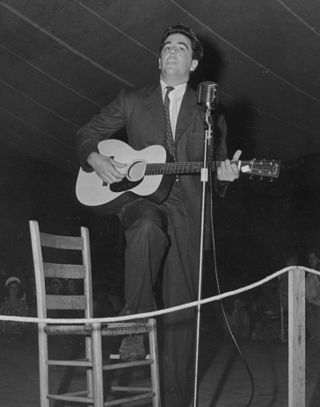
Alan Lomax was an American ethnomusicologist, best known for his numerous field recordings of folk music of the 20th century. He was a musician, folklorist, archivist, writer, scholar, political activist, oral historian, and film-maker. Lomax produced recordings, concerts, and radio shows in the US and in England, which played an important role in preserving folk music traditions in both countries, and helped start both the American and British folk revivals of the 1940s, 1950s, and early 1960s. He collected material first with his father, folklorist and collector John Lomax, and later alone and with others, Lomax recorded thousands of songs and interviews for the Archive of American Folk Song, of which he was the director, at the Library of Congress on aluminum and acetate discs.
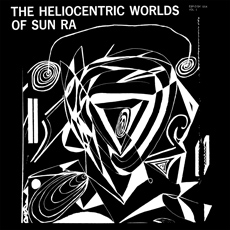
The Heliocentric Worlds of Sun Ra, Volume One is a 1965 album by the jazz musician Sun Ra. The back cover describes it as an "album of compositions and arrangements by Sun Ra played by Sun Ra and his Solar Arkestra".

Sketches of Spain is a studio album by the jazz trumpeter and composer Miles Davis. It was released on 18 July 1960 through Columbia Records. The recording took place between November 1959 and March 1960 at the Columbia 30th Street Studio in New York City. An extended version of the second movement of Joaquín Rodrigo's Concierto de Aranjuez (1939) is included, as well as a piece called "Will o' the Wisp", from Manuel de Falla's ballet El amor brujo (1914–1915). Sketches of Spain is regarded as an exemplary recording of third stream, a musical fusion of jazz, European classical, and styles from world music.
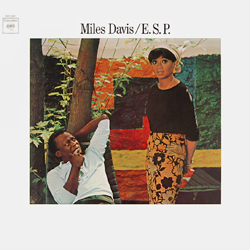
E.S.P. is an album by Miles Davis, recorded on January 20–22, 1965 and released on August 16 of that year by Columbia Records. It is the first release from what is known as Davis's second great quintet: Davis on trumpet, Wayne Shorter on tenor saxophone, Herbie Hancock on piano, Ron Carter on bass, and Tony Williams on drums. The album was named after a tune by Shorter, and was inspired by the fact that, "since Wayne Shorter's arrival, the five members of the quintet seemed to communicate by mental telepathy."

Jack Johnson is a studio album and soundtrack by the American jazz trumpeter, composer, and bandleader Miles Davis. It was released on February 24, 1971, by Columbia Records.
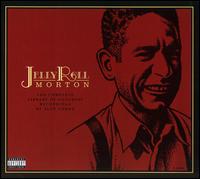
Jelly Roll Morton: The Complete Library of Congress Recordings is a 2005 box set of recordings from jazz pioneer Jelly Roll Morton. The set spans 128 tracks over eight CDs. It won two Grammy Awards in 2006, Best Historical Album and Best Album Notes.
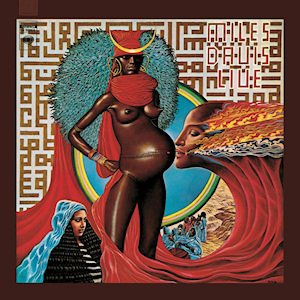
Live-Evil is an album of both live and studio recordings by the American jazz musician Miles Davis. Parts of the album featured music from Davis' concert at the Cellar Door in 1970, which producer Teo Macero subsequently edited and pieced together in the studio. They were performed as lengthy, dense jams in the jazz-rock style, while the studio recordings consisted mostly of renditions of Hermeto Pascoal compositions. The album was originally released on November 17, 1971.

The Magic City is an album by the American jazz musician Sun Ra and his Solar Arkestra. Recorded in two sessions in 1965, the record was released on Ra's own Saturn label in 1966. The record was reissued by Impulse! in 1973, and on compact disc by Evidence in 1993.
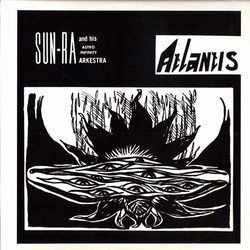
Atlantis is an album by American jazz musician Sun Ra and his Astro-Infinity Arkestra, released in 1969 by El Saturn Records.

Black Beauty: Miles Davis at Fillmore West is a live double album by the American jazz trumpeter, composer, and bandleader Miles Davis. It was recorded on April 10, 1970, at the Fillmore West in San Francisco, shortly after the release of the trumpeter's Bitches Brew album and the recording of Jack Johnson (1971). Black Beauty was produced by Teo Macero, Davis' longtime record producer. A jazz-rock and fusion album, Black Beauty captured one of Davis' first performances at a rock venue during the early stages of his electric period. At the concert, he led his band—saxophonist Steve Grossman, bassist Dave Holland, keyboardist Chick Corea, drummer Jack DeJohnette, and percussionist Airto Moreira—through one continuously performed set list which functioned as a musical suite for soloists to improvise throughout. He signaled changes from one piece to the next with phrases played on his trumpet.
"Nem Um Talvez" is a jazz standard composed by Hermeto Pascoal, first appearing on the Miles Davis 1971 album Live-Evil, which featured Hermeto as a guest musician. It is sometimes known as "Nenhum Talvez". On the record, it is wrongly attributed to Miles Davis. In the album Live-Evil, Hermeto sings "Nem Um Talvez" in unison with Davis.
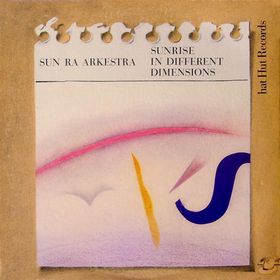
Sunrise in Different Dimensions is a 1980 live jazz album by the Sun Ra Arkestra documenting a concert at the Gasthof Morhen in Willisau, Switzerland from February 24, 1980 which was released on the hat Hut label. The album intermingles a variety of Sun Ra originals with covers of jazz standards.
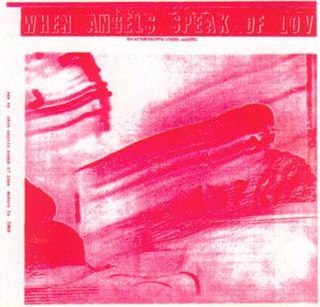
When Angels Speak of Love is a music album by the American Jazz musician Sun Ra and his Myth Science Arkestra. Originally released in 1966 on Sun Ra's own Saturn label, the record would have only been available by mail order or sold at Arkestra concerts, and is one of the rarest of all Saturn releases. The record was reissued on compact disc by Evidence in 2000.

Other Planes of There is an album by the American Jazz musician Sun Ra and his Solar Arkestra. Recorded in 1964, the album had been released by 1966 on Sun Ra's own Saturn label. The record was reissued on compact disc by Evidence in 1992.
'Granted, the selection is certainly not as abrasive and demanding as later efforts, although there is strident involvement from everyone within the dense arrangement. The brass and reed sections provide emphasis behind an off-kilter and loping waltz backdrop. All the more impressive is how well the material has held up over the decades. Even to seasoned ears, the music is pungent and uninhibited, making Other Planes of There a highly recommended collection.' Lindsay Planer

Monorails and Satellites, Volumes I & II are two albums of solo piano compositions by the American Jazz musician Sun Ra. Both recorded in 1966, Volume 1 was released in 1968 under the title "Monorails And Satellites" and Volume II was released in 1974 under the title "Monorails & Satellites", both on Sun Ra's own Saturn label. The first volume was reissued on compact disc by Evidence in 1992. Both volumes, along with nine previously unreleased tracks from the same sessions, were reissued in 2019 on the Cosmic Myth Records label as Monorails and Satellites: Works For Solo Piano Vols. 1, 2, 3. The album showcases Ra's skills as a pianist, which are often compared to Cecil Taylor's;
'Monorails and Satellites, a 1966 solo piano recording, showcases Ra's unique style, which bridges the bluesy architecture of Jelly Roll Morton with the angularity of Monk and Cecil Taylor's ascent beyond traditional structure.'

















